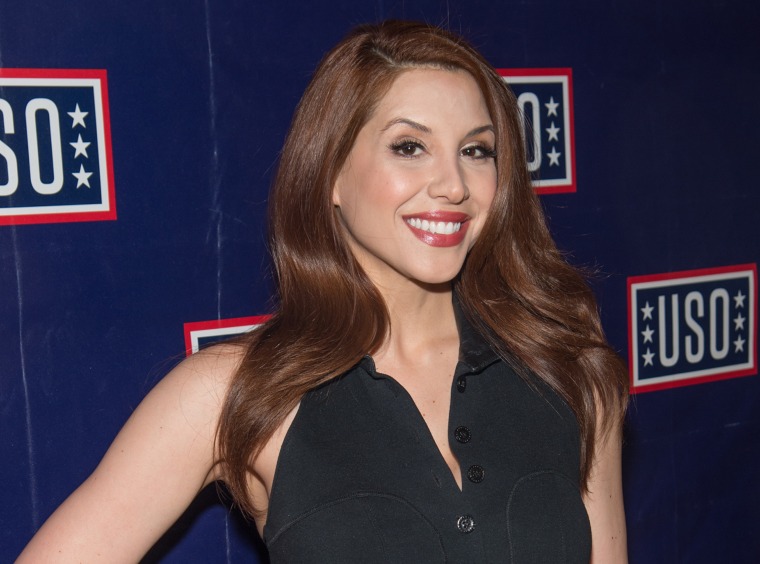Members of the press, by their nature, should not be censored. This is a bedrock principle of journalism. And the United States Constitution recognizes the need to treat the press carefully in keeping with their important societal function. So why are members of the press being asked to sign non-disclosure agreements (NDAs) that prevent them from speaking out about their work? Such agreements hurt both the individual journalists and of course the public.
This appears to be true in the case of former Fox News employee Diana Falzone, who sued Fox News, and as part of a settlement agreement, signed an NDA in which she agreed to not to talk about her work at Fox.
Apparently, that work included reporting on the Stormy Daniels controversy during the 2016 election, only to be told by her bosses that she would need to scuttle the story. Why she was told to do so remains a matter of debate, with the New Yorker alleging that Fox killed the piece to protect then-candidate Donald Trump.
The First Amendment leaves open the possibility that private individuals and groups can in fact silence the speech of anyone, including the press.
The First Amendment to the U.S. Constitution provides that the government shall make no law abridging the freedom of speech or of the press. But the First Amendment leaves open the possibility that private individuals and groups can in fact silence the speech of anyone, including the press. That is why NDAs can exist. These are agreements, often signed between employers and employees, to prevent the employee from speaking about certain topics, most often those topics related to the employees work.
SIGN UP FOR THE THINK WEEKLY NEWSLETTER HERE
And NDAs do have a legitimate role to play in our society. There are situations in which employers should be able to demand the utmost confidentiality from their current and/or former employees, and NDAs help to ensure that confidentiality. Think about the celebrity who wants to hire an assistant, but wants to ensure that assistant does not share the details of her kids’ personal lives. Think about the employer who is developing a new technology and wants to ensure that current and former employees do not share that technology with competitors.
Often NDAs are signed between an employer and a soon-to-be-former employee to help solve a disagreement between the two parties. The employees may have, for instance, sued the employee, and as part of the settlement, the parties enter into an NDA to prevent the employee from speaking about her employment.
That is precisely what happened to Diana Falzone. But Falzone, unlike the celebrity assistant or the person who works for an employer developing a new technology, is a member of the press. She seemingly signed away her write to tell the public what she was reporting on and why. This hurts both Falzone’s right to speak, but perhaps more importantly it hurst the public’s right to hear. And it undermines the media’s primary responsibility of disseminating information.
Or does it? Falzone has been called to testify in front of the House Oversight Committee, and Falzone’s lawyer has said her client will comply to this request. She is able to do so because her NDA, like many NDA agreements, explicitly have an exception for government investigations. (And even where this was not the case, courts would be unlikely to uphold a NDA against a Congressional request.)
The public has a right to know whether Fox News killed negative stories about Trump before the presidential election, essentially functioning like an arm of the Trump campaign. A court has already found that the National Inquirer’s pattern of catching and killing stories unfavorable to Trump means the organization acted like part of the campaign, instead of like a bona fide news corporation. The public can and should treat information released by a campaign as different from information released by the media.
The public has a right to know whether Fox News killed negative stories about Trump before the presidential election.
There is a reason the First Amendment specifically protects not only the right to speak, but also the right of the press to report. The role of the press is to hold our representative government officials accountable to their representatives. We should not allow media corporations to hinder those roles by forcing current and former employees to sign NDAs that cover their time as reporters. Enforcing these NDAs would likely mean depriving the public of vital information.
But neither should we have to wait for Congress to formally request that a reporter speak about her reporting.
States have limited the applicability of NDAs. For instance, California prohibits NDAs when the facts of the claim could give rise to criminal charges of felony sex offense, an act of childhood sexual abuse, or an act of sexual exploitation of a minor. States should similarly prohibit NDAs when the enforcement of NDAs would prevent members of the press from speaking out about their reporting. If states fail to limit the scope of NDAs, courts should refuse to enforce NDAs covering those issues.


